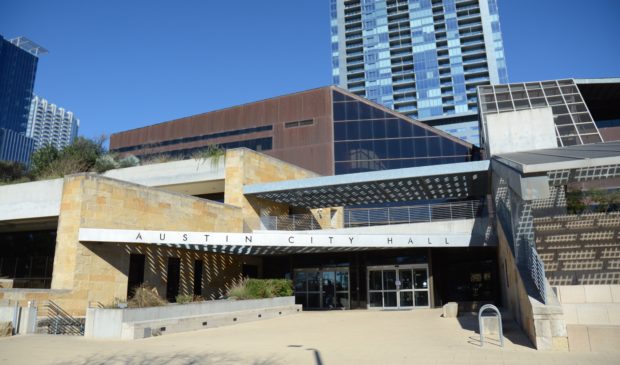Council to increase homestead exemptions, tax rate ceiling
Wednesday, June 2, 2021 by
Jonathan Lee City Council plans to vote this week on three items affecting Austinites’ property taxes.
Two measures would give homeowners modest property tax relief through increased homestead exemption rates. The third measure would effectively set a higher maximum property tax rate, allowing the city more flexibility as it decides what rate to set in August. All three look likely to pass at Thursday’s meeting.
The new homestead exemption rates would decrease city property taxes for people who own and live in their homes. Council is looking to increase the general exemption rate from the current 10 percent to 20 percent, the maximum allowed under state law. This means that qualifying properties would only be taxed at 80 percent of their appraised value instead of 90 percent.
Council will also decide this week whether to change homestead exemptions for seniors 65 and over and people with disabilities. The senior and disability exemptions are flat rates, rather than a percentage. The exemption rate would increase from $88,000 to $113,000. These amounts are deducted from a qualifying property’s appraised value, meaning taxes are then levied on the new value.
The general exemption would save the typical homeowner $141.06 next year if the city increases taxes by 3.5 percent, according to Deputy Budget Officer Erik Nelson. Under the same scenario, the savings with the senior and disability exemption would be $150.87.
Council members said that the exemptions would help homeowners handle increased tax burdens as property values in the city skyrocket. “There are many folks that need this type of relief,” Council Member Paige Ellis said.
The city has wanted to change the general homestead exemption rate to 20 percent for several years, but has opted out because doing so, according to the state comptroller, would have decreased the city’s allowed property tax revenue under state law, jeopardizing some city services. But after the comptroller changed its interpretation of state law this year, increases in homestead exemptions do not affect the city’s total allowed property tax revenue.
Though Council members supported the exemptions, some still had concerns. Council Member Greg Casar said he wished that general homestead exemptions could be a set amount – like the senior and disability exemptions – instead of a percentage, so that lower-income homeowners could see more relief. State law requires that general homestead exemptions be calculated as a percentage.
“Folks that are struggling the most that are homeowners get the least relief, most likely because it’s percentage-based rather than flat-rate,” Casar said.
Lower property taxes for homeowners would also push the tax burden onto commercial properties, particularly large, expensive ones. This prompted some concerns among Council members that the increased taxes on commercial properties could be passed on to tenants through higher rents.
Casar and others argued that targeted relief both for struggling homeowners and renters should remain a Council priority. “I do think that it’s really important, since we all represent both homeowners and renters, for us to find ways to help both,” Casar said.
Amid discussions of tax relief, Council is also considering giving the city the ability to increase property taxes by as much as 8 percent for the next year.
Typically, Texas cities can only increase property taxes by 3.5 percent annually. Any percent increase above that threshold – called the voter approval rate – would trigger a tax rate election. But Gov. Greg Abbott’s Covid-19 disaster declaration allows cities to increase that threshold to 8 percent – the maximum rate before a 2019 state law cut it to 3.5 percent – for the next fiscal year.
Even though the city could increase property taxes by 8 percent, the actual percent increase will likely be less than that. Next year’s tax rate will be adopted this August as part of the city’s annual budget process.
The Austin Monitor’s work is made possible by donations from the community. Though our reporting covers donors from time to time, we are careful to keep business and editorial efforts separate while maintaining transparency. A complete list of donors is available here, and our code of ethics is explained here.
You're a community leader
And we’re honored you look to us for serious, in-depth news. You know a strong community needs local and dedicated watchdog reporting. We’re here for you and that won’t change. Now will you take the powerful next step and support our nonprofit news organization?



